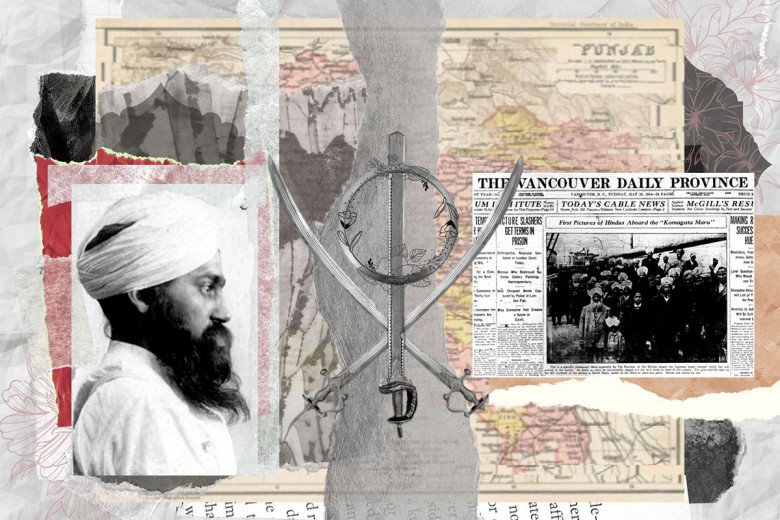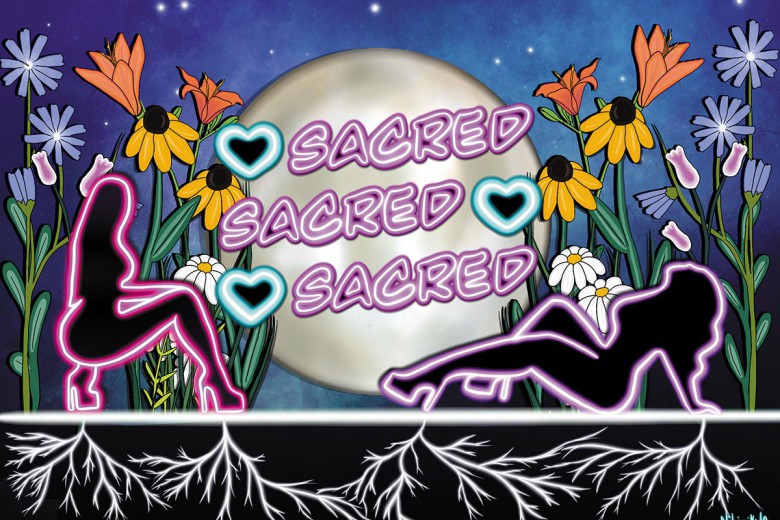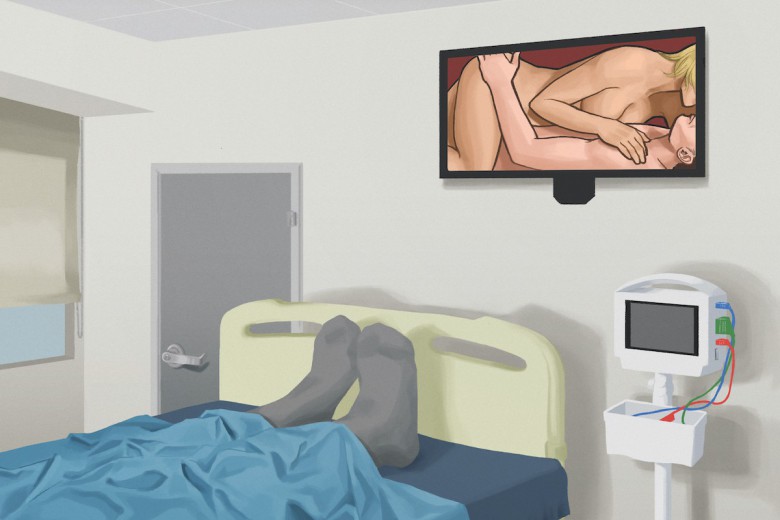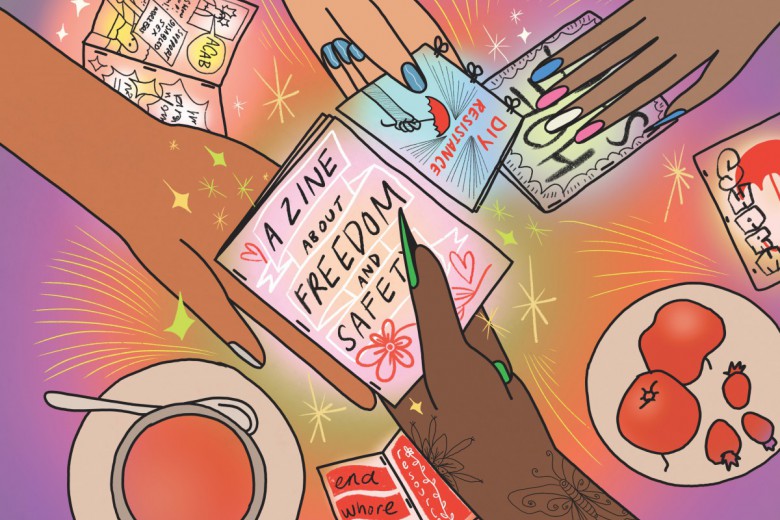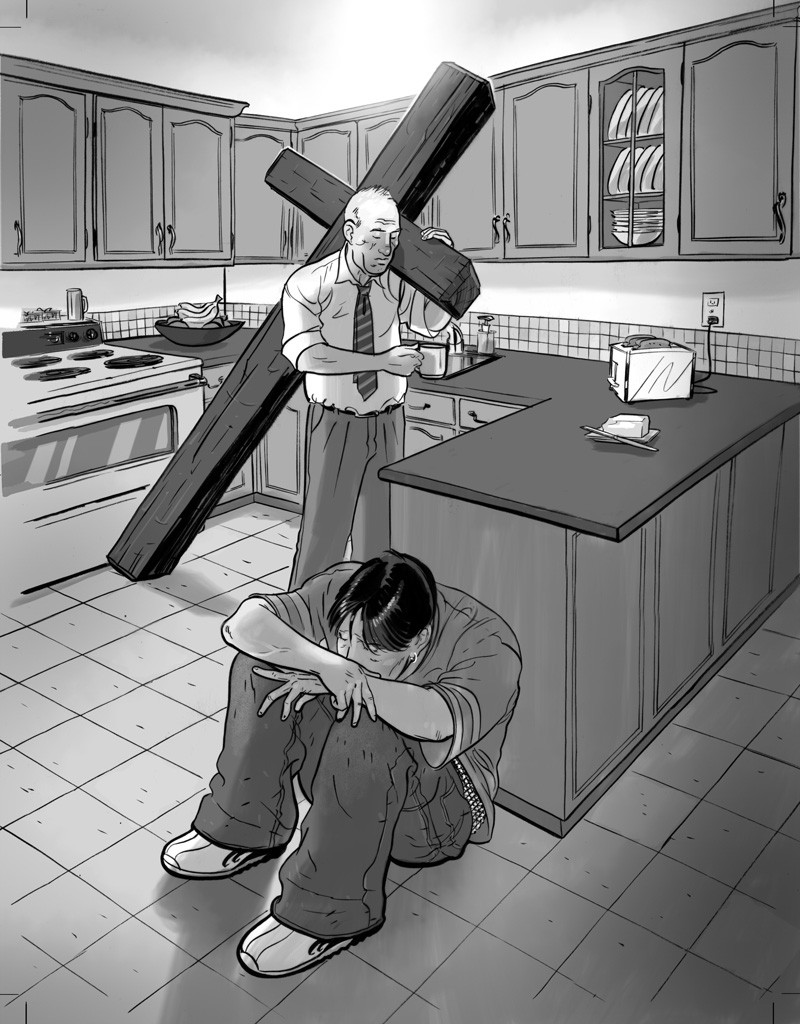
I remember the exact moment my Sundays changed forever. I was 14.
Sunday mornings in our house had always been filled with a routine chaos. Mom and Dad woke up first, showered and dressed, then called my two younger sisters and me in sequence. After our allotment of bathroom time, carefully monitored and often punctuated by knocking on the door, we each got dressed in the clothes my mom had laid out on our beds: dress pants and an ironed shirt for me, dresses reserved for Sundays for my sisters. All of this happened amidst constant complaints and pleas to stay home that week. New and creative excuses were tried and ignored. Finally, neither a moment too soon nor too late, we crowded into the car and arrived at the church in time to claim our regular pew — not too close to the altar but not far enough away to suggest that we really didn’t want to be there.
In 1988 this routine was broken. The United Church of Canada issued a statement that polarized my family and caused me to confront feelings which to that point I had tried desperately to ignore. The Church would welcome “lesbian, gay and bisexual people into all aspects of the life and ministry of the Church.”
My father, who was very active in our local congregation as a member of the Board of Management and the men’s service group, and often offered his time and skills to the maintenance of the church and his voice to the small choir, was outraged.
His strong views about homosexuality were no secret; he displayed his deep anger and hatred toward the gay, lesbian and bisexual community regularly to anyone willing to listen. Homophobic jokes and cruel tirades were common. This announcement meant he had to take a stand.
“I was angry” he explains now. “Angry at the church for taking this position. I knew it was wrong. But they were going ahead with it. I had no choice. I decided to leave the church.”
My father followed through with his decision. But he didn’t go quietly. He told congregation members why he was leaving. He spoke about it openly and harshly with his friends and other community members, using the Bible to justify his beliefs and actions. “I just picked and chose what worked for me. Now I know that was wrong but I just needed something to back me up” he reflects.
My mother kept going to church. Every Sunday she would get up, call us kids and try to implement the same routine. But now we had new ammunition: if Dad didn’t have to go why should we? I remember seeing the hurt in her eyes when we said this but she didn’t argue. She often went to church alone. I now know this must have been a difficult time for her, but when I was 14 I just wanted to be as far from the debate as possible. I was struggling with my own challenges.
At 14 I knew I was gay. The recent rise in media attention given to suicides of young gay men in the United States reminds me of my feelings at the time. I never seriously contemplated taking my own life. My love for my family and knowing the hurt it would have caused them prevented me from thinking this way. But every night I turned to God and prayed: “Please, God, tomorrow let me wake up without these feelings. Let me wake up straight. Or don’t let me wake up at all.” Every day I woke up and every day I knew that my feelings had not changed.
When my father made comments about gay people I felt he was speaking about me. He never said this but my sinking heart and growing fear led me to believe that he somehow knew. When he said, “It’s an abomination. This is wrong what the church is doing” I heard, “You are an abomination. They are wrong to include you.” Each and every comment served to confirm my own self-hate.
Over the next few years, as my feelings for other men intensified and my certainty about my sexual orientation strengthened, my father’s vocal opinion remained the same. He continued to avoid church, although conversations between him and my mom about his decision eventually stopped.
I left the province to go to university. One afternoon I was alone writing a resumé for a summer job on campus and a strong realization came over me. I had some amazing experiences to list but none of them felt like they were mine. They all felt like they were done by someone everyone else wanted me to be. I knew I couldn’t live like this. I needed to have my own experiences and be my own person. I needed to stop living a lie. It was not an easy decision. I cried, planned, talked to close friends and stressed over it, but in the end made the decision to be true to myself and disclose my sexual orientation to my family.
I spent the Christmas holidays before I came out visiting with extended family members, talking with my parents and enjoying the festivities as best I could. I believed that it would be the last time I would be welcome in my home. I had written a carefully worded letter and planned to give it to my parents when I left, but at the last minute, after waiting as long as possible to clear airport security, I just couldn’t bring myself to do it.
A week later I called them from a friend’s dorm room. With both of my parents on the line, I said, simply, “Mom. Dad. I’m gay.”
My father cried and hung up the phone. My mom, also upset, talked to me the best she could. I could hear my father’s sobs in the background. It was the first time I had heard him cry. I wasn’t prepared for the pain I felt from hearing this. I didn’t speak to my father directly for months afterward. I spoke to my mother every day. She called every evening to see how I was doing, to ask questions and to affirm her love for me. She told me she was afraid that I would drift away from the family. I was still afraid that my father would force me out.
My parents both struggled with the news that their oldest child and only son was gay. My mother worried about what this meant for my future, while my father was forced to re-evaluate all of his beliefs about homosexuality, and to try to reconcile his hatred for gay men and his love for me as his son. He took time off from the high school where he worked, was prescribed anti-anxiety drugs by his doctor and spent the next weeks in a medicated haze.
One night, concerned for my father’s mental health and unsure where else to turn, my mother suggested they call their minister. My dad agreed, and their minister met them that night at the church office.
This was the beginning of a significant turning point for my father. “He was a good listener. He told me that he understood how I was feeling. He had a gay brother and he talked about that. He talked about the position of the church — the one that I was so angry about for so long. It began to make sense. It helped me. It was still rough but it settled me.”
My father did not become immediately comfortable with the idea of having a gay son. The scales did not immediately fall from his eyes. But this meeting began a process that would eventually lead him to being one of my biggest and most reliable supporters. The relationship we have today is based on love and mutual respect, and is stronger than ever before.
While he says that the church was not the sole reason he was able to learn to accept and appreciate the LGBT community, it did provide a solid system of support for him along this journey. “The church didn’t get me over my homophobia, Marc” my father tells me. “That was you. The love that I have for you. My son. I couldn’t lose you over this. But it was a place I could go where I knew people were behind me. The church policy that I used to be against now confirmed the love and openness I had for you.”
As my father grew more comfortable with his feelings about having a gay son, the United Church was also moving forward on its own path of embracing the LGBT community and challenging homophobia. Congregations across Canada were struggling with the decision of whether to be publicly acknowledged as affirming, gay and lesbian ministers were sometimes having difficulty finding acceptance in congregations, and many Sunday dinners were accompanied by loud and often derisive debate.
A couple of years after I came out, the United Church hosted a regional conference in a community not far from where my parents lived. The topic was how to move forward on the issue of LGBT inclusion in the Church. My parents attended. It proved to be another turning point for my father.
“I sat there and I listened. Part of me couldn’t believe the hatred and the terrible things that people felt they had a right to say. But then I remembered that it wasn’t too long ago that I felt I could say the same things.”
Then, for the first time, my father spoke publicly, to a room filled with people he didn’t know, about having a gay son and the important role that the United Church played in creating safer spaces for the LGBT community.
“I had to speak” he explains. “I shared my story. People listened. I don’t know if it changed anyone’s mind but it was good for me to do it.”
He was invited to sit on a panel in a future meeting and answer questions about his experience. He continued to do this as other churches grappled with the same decisions.
Recently, my parents’ church community faced another difficult decision. Each year, congregations from the different faiths in our small town come together for an ecumenical prayer and song service. Participating faith groups take turns hosting the service. This year’s invitation came with a condition: the organist and choir director of my parents’ church, an out gay man, was told he could not participate as his “lifestyle” was contrary to the host church’s beliefs. Being active on several church committees, my parents were among those who had to decide how to respond. It was a well-considered debate. In the end, the progressive policies of the United Church provided guidance to the discussion and the congregation decided not to participate. My father was proud of this decision.
“We took a stand. And a good one. The policies supported us in this. But there is more to be done still. We need to go further. The national church has made a decision to be open and supportive but there are still smaller congregations that have not followed this lead. The national church needs to be more directive in this regard” he asserts.
Unlike many other activist organizations, the United Church of Canada as a whole is not known for public demonstrations, flag-waving or other forms of loud fanfare. Some affirming congregations do march in local gay pride parades, but this is not the norm. While the Church made a strong public stand about homosexuality and suffered the loss of several ministers and community members because of it, for the most part it has embraced a quieter form of activism. The United Church has chosen first to examine its own policies and positions and create places for LGBT community members and their families to feel safe and supported. The profound impact that this has had on the experience of my father proves that this form of activism is also very powerful. My father would have gotten there eventually; his love for me would have shown him the way. But the United Church provided a framework for his growth and was a powerful ally for him on this journey.
When I was 14, my Sundays changed forever. I have not followed my father’s lead and returned to church. On the rare occasions that I accompany my family to a Christmas Eve service I do so out of a desire to be close to my family and not to God. I still carry the scars and painful memories of that debate. I am thankful, however, for the impact that the United Church’s historic stance had on my family and, more specifically, on my relationship with my father.


